The food industry is making some impressive leaps on gender equality – but some backwards steps too. Meet the women leaders across industry and government who are keen to keep smashing grocery’s glass ceilings
1. Alessandra Bellini
Tesco CCO

There’s a reason former Tesco CEO Dave Lewis raided his former employer Unilever to bring in Alessandra Bellini as the supermarket’s leading marketer in 2017.
In the wake of its high-profile trading scandal, public perception was improving but the turnaround was far from over. As Bellini recalls: “We needed to rebuild the brand, and trust in the brand.”
It’s been a long road to recovery but Tesco’s CCO has been instrumental in it, delivering a wide range of initiatives from her early relaunch of the own-brand portfolio and development of Tesco’s ‘Food Love Stories’ to the more recent Aldi Price Match, and launch of Clubcard Prices – initiatives that brought fun, personality and a sense of purpose back to the UK’s biggest retailer.
The loyalty revamp boosted digital engagement, with the number of shoppers accessing Clubcard via the app or website in October 2021 nearly quadrupling versus pre-Covid, to 8.5 million. “Her passion for developing and growing the Tesco brand is infectious,” says current CEO Ken Murphy.
Another Tesco source credits her as “an instrumental figure” in the turnaround of Tesco’s public image with a series of advertising campaigns like last year’s ‘Pop to Your Local’, which actively encouraged customers to support their local pubs rather than promoting Tesco’s products. According to Marketing Week, its feelgood factor earned it the ‘most effective ad’ title at the time.
“She’s the voice of Tesco,” the source adds. “Through advertising, she has really been on the side of the customer,” which has seen Tesco “become more relevant to customers”.
Her work hasn’t just been public-facing. Bellini has also been heavily involved in the launch of the closed-loop Tesco Media and Insight platform in partnership with Dunnhumby, a system aimed at monetising the customer data insights generated through Clubcard as the retailer looks to capitalise on alternative income streams.
In October, Bellini further solidified her position as the country’s top marketer by taking on the role of president of the Advertising Association, which will see her focus on promoting responsible advertising.
2. Sol Daurella
Coca-Cola Europacific Partners chair

If there’s one woman who’s spent a lifetime in powerful circles, it’s Sol Daurella. She is the third generation of her family to run part of the Coca-Cola global network since they signed Spain’s first bottling agreement almost 70 years ago.
Daurella took over as chair in May 2016 following the three-way merger of Coca-Cola bottlers to form the European giant that is CCEP. In 2021, it became the world’s largest Coca-Cola bottler with the buyout of Coca-Cola Amatil.
Daurella herself owns about 7% of the company, giving her a net worth of $1.8bn, according to Forbes.
Having risen to the top following many years of leadership roles across the company, she isn’t one to lock herself away in an ivory tower. Just recently, she was out on the streets of London with the board of directors and the field sales team, talking to customers and supply partners as well as going over key strategic points.
She is a “big inspiration”, according to CCEP’s VP of field sales Caroline Cater. “Her very first presentation, she brought all of our leaders together and said the two key things for her were strengthening the relationships with our franchise partners and supporting frontline workers. I remember at the time thinking, ‘no one else has ever said that so explicitly before’.”
The Daurella family has close ties with Banco Santander – the largest bank in Spain – where Sol sits as a director. She also serves as honorary consul for Iceland in Barcelona, compounding her influence across government, banking, and of course, one of the world’s largest food and drink companies.
3. Sharon White
John Lewis Partnership chair
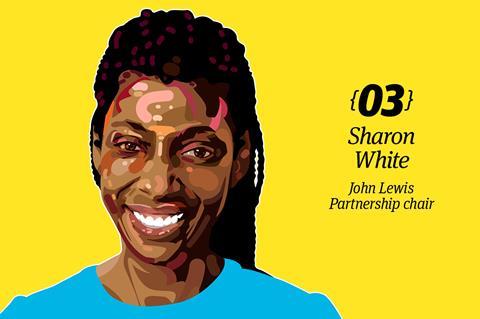
As a former Treasury permanent secretary, Dame Sharon White is no stranger to an economic challenge. That was a key point in her favour when she took the top job at the John Lewis Partnership in February 2020, tasked with leading the company’s transformation strategy following years of decline.
White was met with a baptism of fire, joining just weeks before the pandemic hit and the sector went into meltdown. It’s testimony to her clear head that the retailer has come out of the crisis stronger than before. The latest JLP full-year results saw John Lewis revenues hit record highs, while Waitrose sales were up 11% on two years ago.
This isn’t to say it’s all plain sailing. Under White, the company permanently shut down eight of its John Lewis stores – including its flagship £35m store in Birmingham – affecting nearly 1,500 employees. And the partnership is still in the red.
But White is now looking to diversify the business away from retail to maintain its recovery. That includes a major move into private property that could see the business build 10,000 homes in the next 10 years in a bid to provide affordable housing.
4. Shirine Khoury-Haq
Co-op interim CEO (from May)
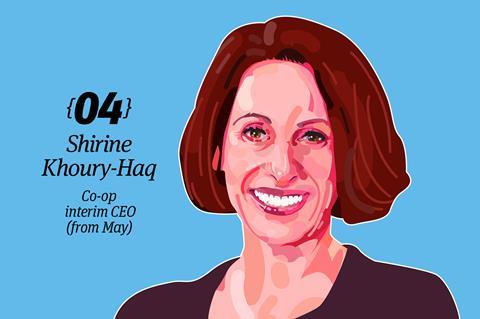
For now, Shirine Khoury-Haq is only confirmed as interim Co-op CEO, a position she will take up in May. However, she is widely expected to get the job on a permanent basis. She has been the group’s CFO since 2019 and is understood to have long been the frontrunner to succeed Steve Murrells, who announced his resignation last week. Her appointment means The Co-op, John Lewis and Marks & Spencer all have female retail bosses.
Khoury-Haq steps into the role at a time of major change for the retailer. Jo Whitfield, the Co-op’s food boss, is taking a four-month career break in May, while chairman Allan Leighton is also preparing to move on.
Luckily, she has plenty of varied experience to prepare her for this change. Khoury-Haq began her career with McDonald’s in the US and spent five years as COO at Lloyd’s of London. She is currently a non-executive director of Persimmon Homes. So if anyone can continue the critical turnaround of the Co-op in recent years, it’s Khoury-Haq.
Under her leadership, the convenience-led chain will continue its expansion drive, which helped to boost pre-tax profits from £24m to £127m in the year to January 2021.
5. Roisin Currie
Greggs CEO
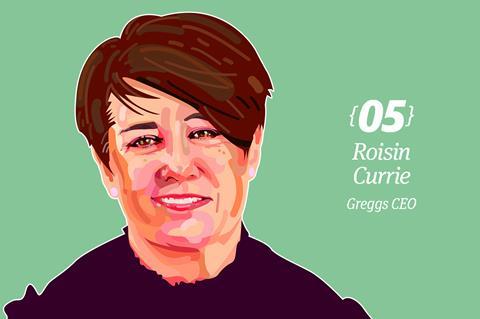
Roisin Currie is stepping into big shoes. She’s taking over as Greggs CEO in May from Roger Whiteside, who has led one of the most successful growth cases in the food industry in recent years. Now in the FTSE 250, Greggs has a market cap of nearly £2.5bn with its share price rising sevenfold in the nine years of Whiteside’s tenure.
Having worked at Greggs since 2010, Currie is well placed to continue that growth trajectory. She has played a crucial role in the transformation of the chain from a beloved yet slightly scruffy brand into a nationwide sensation by expanding the store estate, polishing its image and modernising the menu (can any other pastry ever top the levels of social media furore caused by the vegan sausage roll?).
It was in her role as retail and property director that Currie really made her mark. Here, she led the development of the bakery chain’s store estate at a time when rivals such as Pret a Manger were forced to close numerous stores due to two years of lockdowns and widespread labour shortages. By contrast, Currie led an expansion across the capital, seizing on the fall in property costs in central London as an opportunity to double down on expansion. The move has also helped Greggs build its delivery business, singled out by Currie as a key achievement.
“Growing our delivery partnership with Just Eat, and at such pace, is something I am really proud of,” she told The Grocer. “From initial trials in 2019 to rolling out to 600 shops when the pandemic hit, to now over 1,000 shops nationwide, it’s an exceptional example of cross-functional working, with a number of teams across the business pulling together to make it happen.”
As she prepares to take the helm, Currie is keen to continue the strategy that has served Greggs so well. “I am excited about pushing ahead with our strategic plan, turning Greggs into a destination for every mealtime by extending opening hours into the evening, and maximising our use of digital technology to grow our delivery business.”
6. Mel Smith
Ocado Retail CEO

As head of Ocado’s online grocery division, Mel Smith has been in charge of Ocado Group’s £1.5bn joint venture with Marks & Spencer, which launched in September 2020 and made the posh retailer’s products available to an online audience for the first time.
She’s had something of a rollercoaster ride. Preparation for the M&S launch came in the middle of covid, when Ocado demand exploded to the point that it temporarily stopped taking orders. The online giant was then hit by labour shortages and a devastating fire at its Erith warehouse last year that cost it around £35m and an estimated loss of 300,000 orders. Most recently, it reported a 5.7% drop in Q1 sales as shoppers returned to pre-pandemic habits.
Nevertheless, the former M&S strategy director is confident “the trajectory of growth remains positive” thanks to its investment in “new hyper-efficient automated” midi, mini and micro CFCs. But to gain share, Smith’s focus will also need to tackle value perception, amid mounting inflation.
7. Minette Batters
NFU president
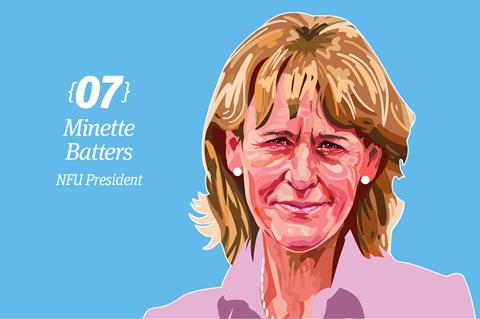
As the first female president in NFU history, Batters has led the farming union through a series of existential challenges – from Brexit to Covid and now food price inflation.
She is the trade body’s politician, exploiting an array of contacts throughout Westminster and the media to provide a high-profile and fearless voice on issues facing her members.
Granted, her results have been mixed. There have been victories on trade and standards, after she rallied one million signatories to the NFU’s petition, and seasonal workers concessions were a victory of sorts, but the UK government has opted against prioritising food in trade deals, and the government post-Brexit subsidy system is a worry.
In response, Batters has only grown more vocal. At its recent NFU Conference, Batters accused the government of showing a “total lack of understanding of how food production works” and pointed to its “completely contradictory policies” on farming in a post-Brexit trade environment.
8. Julie Chen
Cheeky Panda CEO

A toilet paper brand hitting an £80m valuation in just under four years may sound slightly absurd. But Cheeky Panda managed just that by tapping into sustainable trends – and keeping customers supplied as they faced empty loo roll shelves during Covid.
The eco-friendly bamboo toilet roll is now gearing up for a £300m IPO, which could make it one of the biggest splashes of the year on the London Stock Exchange. A key driver of this success is CEO and co-founder Julie Chen. Having launched the brand with husband Chris Forbes in 2016, Chen has been relentless in pursuing growth. Cheeky Panda has just closed a £2.8m funding round – surpassing its goal by 276% – to become the most successful crowdfunded B Corp to date.
Chen also has some serious accolades under her belt. She was featured on the FT’s 30 UK female entrepreneurs to watch and on the Sunday Times’ Ones to Watch in 2020, before being named Business Woman of the Year by MSDUK in 2021.
9. Tamsin Cooper
Health department – leading NFS response
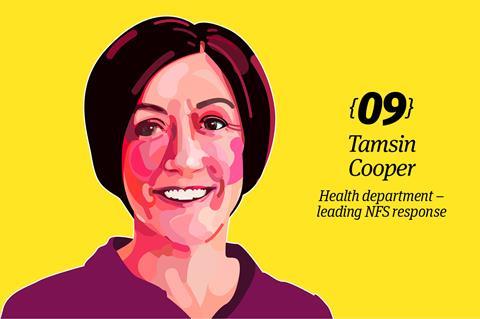
A political strategist and policy advocate at heart, Cooper was Michael Gove’s choice for the role of director of the National Food Strategy during his time as Defra secretary.
Working alongside Henry Dimbleby, Cooper has called for major structural change to the system, including proposals for sweeping new taxes on HFSS products, improved reporting transparency on areas such as environmental impact and food waste, plus a shift towards less meat.
Now, Cooper has switched sides. She is on secondment to the Department of Health & Social Care with a team that will spearhead the government’s response to the report, due later this year. In the coming months, her true political lobbying power will be put to test as the food industry steps up efforts to delay the HFSS laws due to come into force in October.
She will also need the support of the PM and his backbenchers as she seeks the kind of political backing the white paper response will need to succeed. If she gets it, Cooper will be involved in a transformation of not just the UK’s obesity strategy, but the food system as a whole.
10. Sharon Graham
Unite general secretary
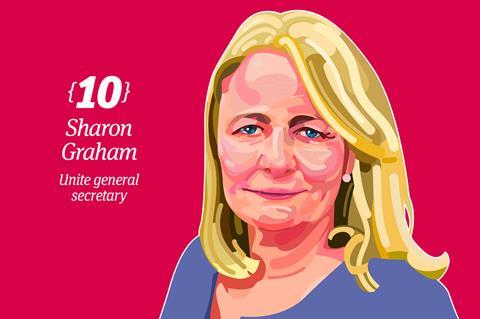
Sharon Graham hasn’t been the face of Unite for long (she was appointed general secretary in August 2021) but has quickly become the voice of unionised food industry workers throughout a series of high-profile strikes and ballots. She is a voracious critic of government and employers – recently accusing Weetabix bosses of “attacking their own workers” with ‘fire and rehire’ tactics – and is making her presence felt. She is successfully leveraging current labour shortages to secure pay increases for thousands of food industry employees, including a 5.5% salary hike for Tesco’s warehouse workers. “It’s the least [they] could expect,” she says bluntly.
The 10 most powerful women in food, drink and grocery

The food industry is making some impressive leaps on gender equality – but some backwards steps too. Meet the women leaders across industry and government who are keen to keep smashing grocery’s glass ceilings
 Currently
reading
Currently
reading
The 10 most powerful women in food, drink and grocery
- 2













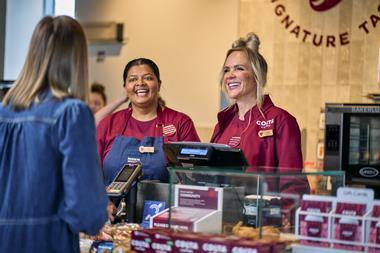


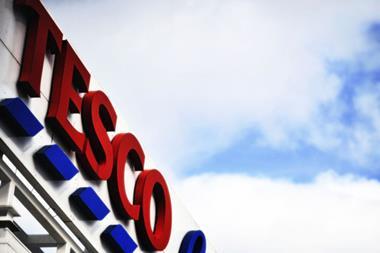



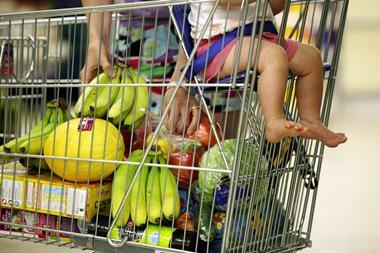


No comments yet